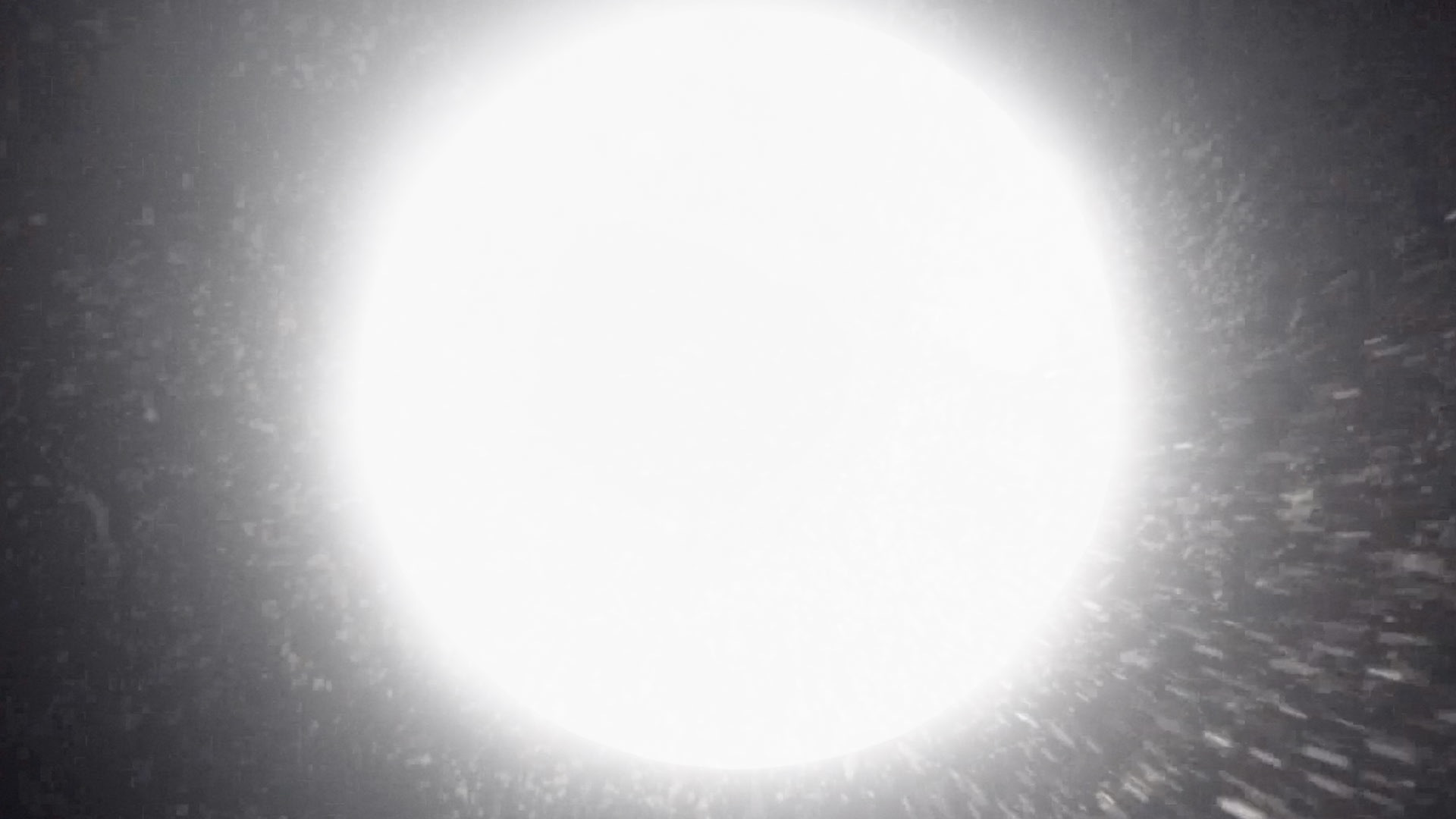
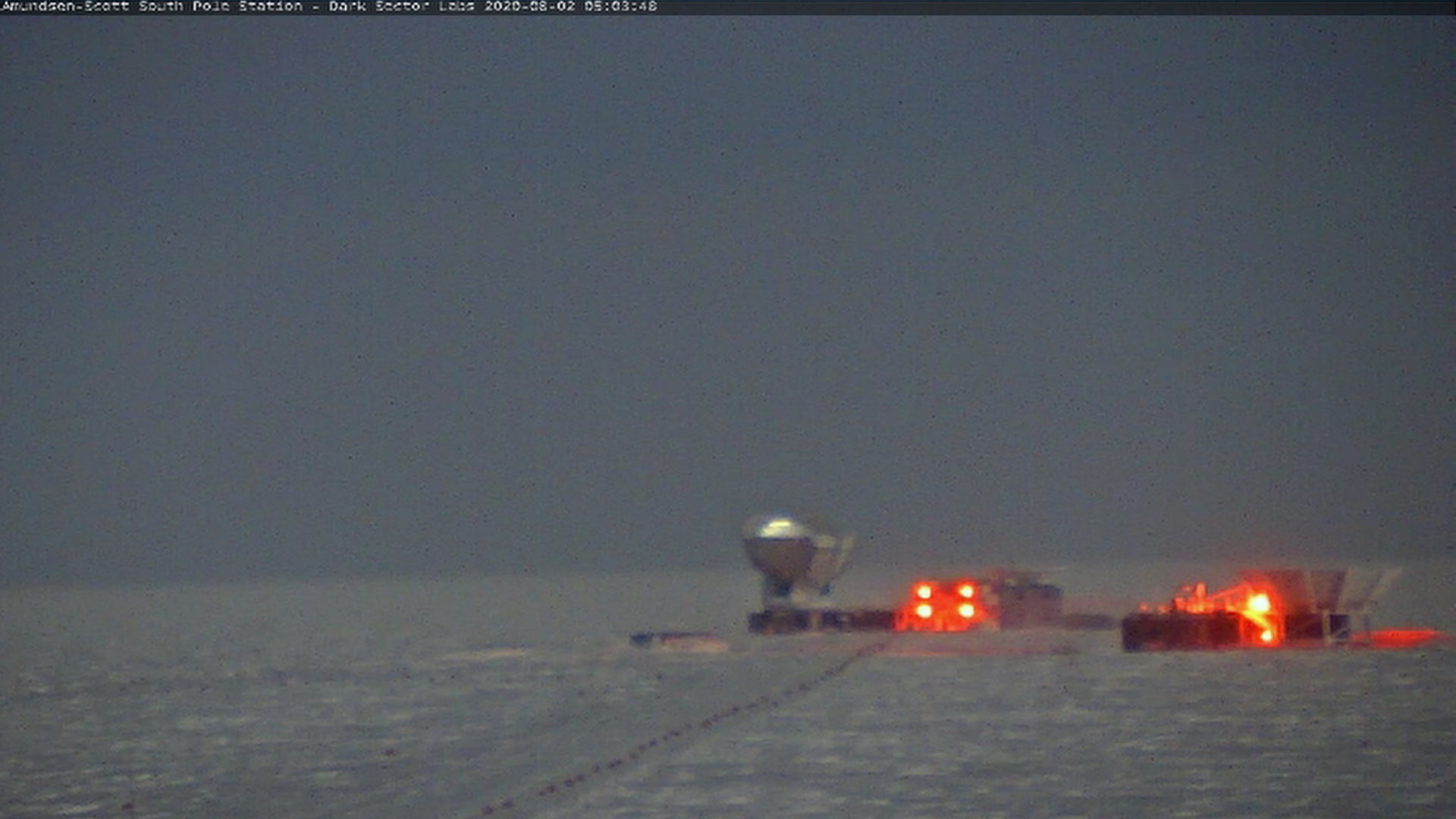
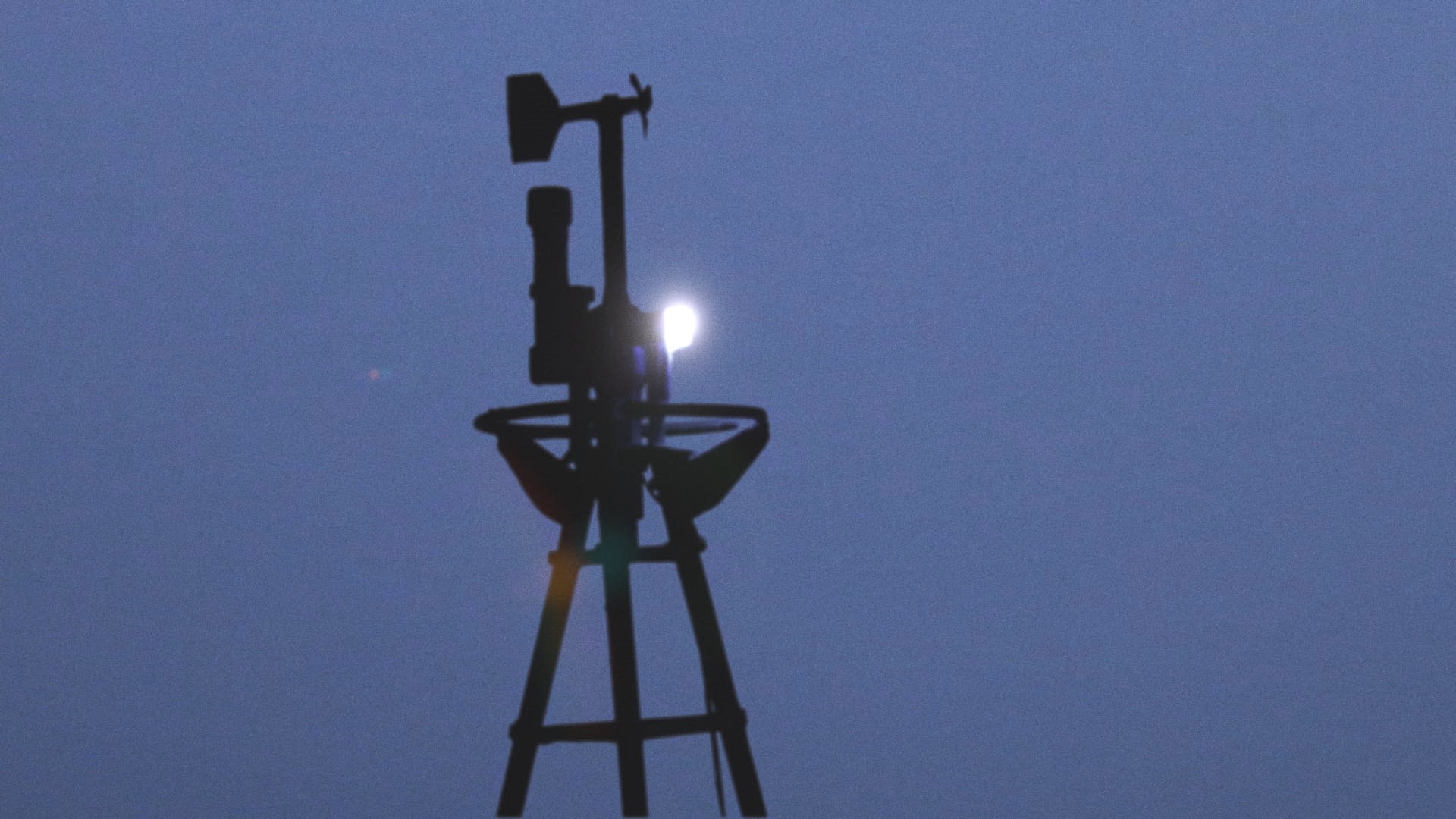
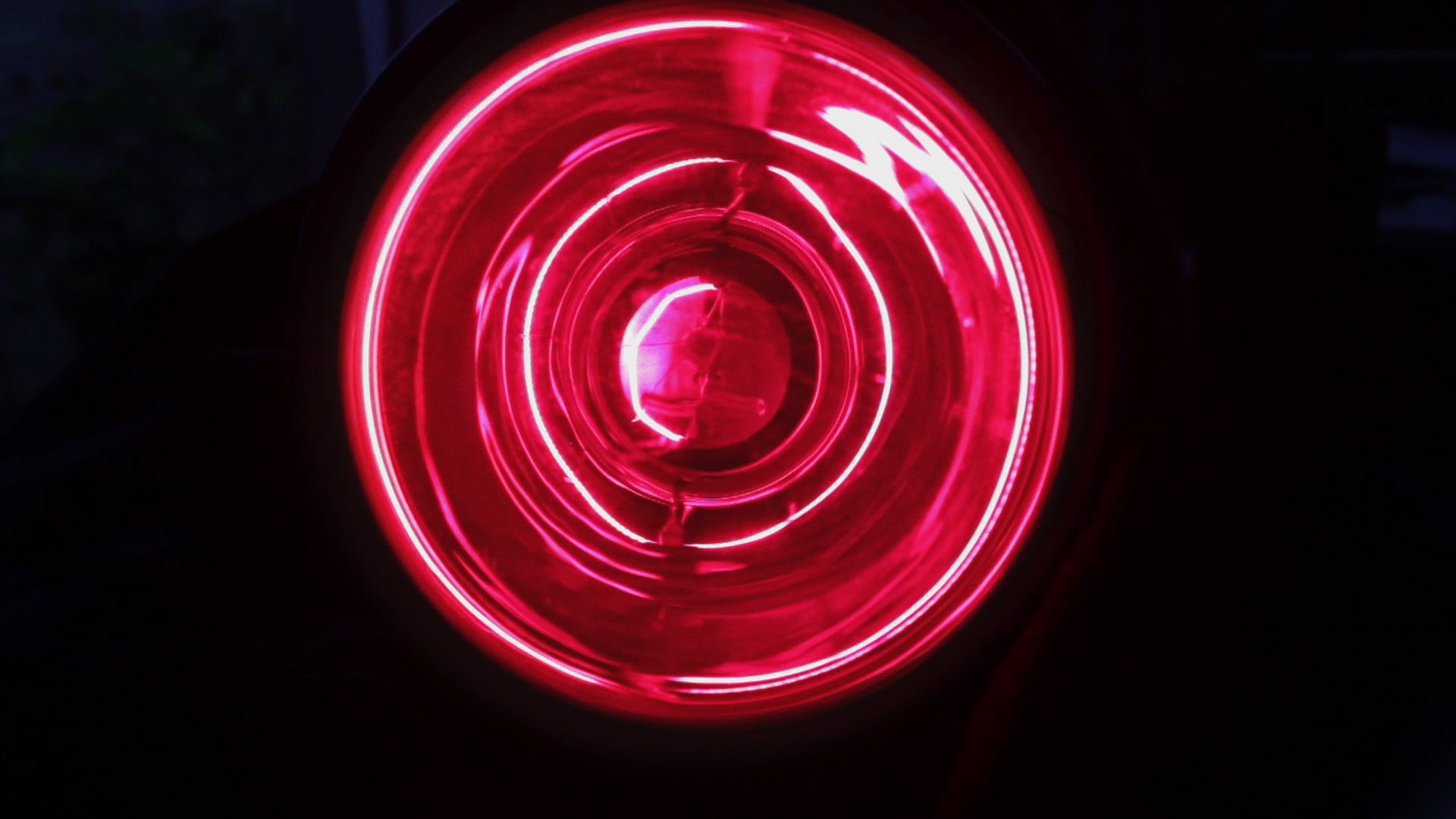
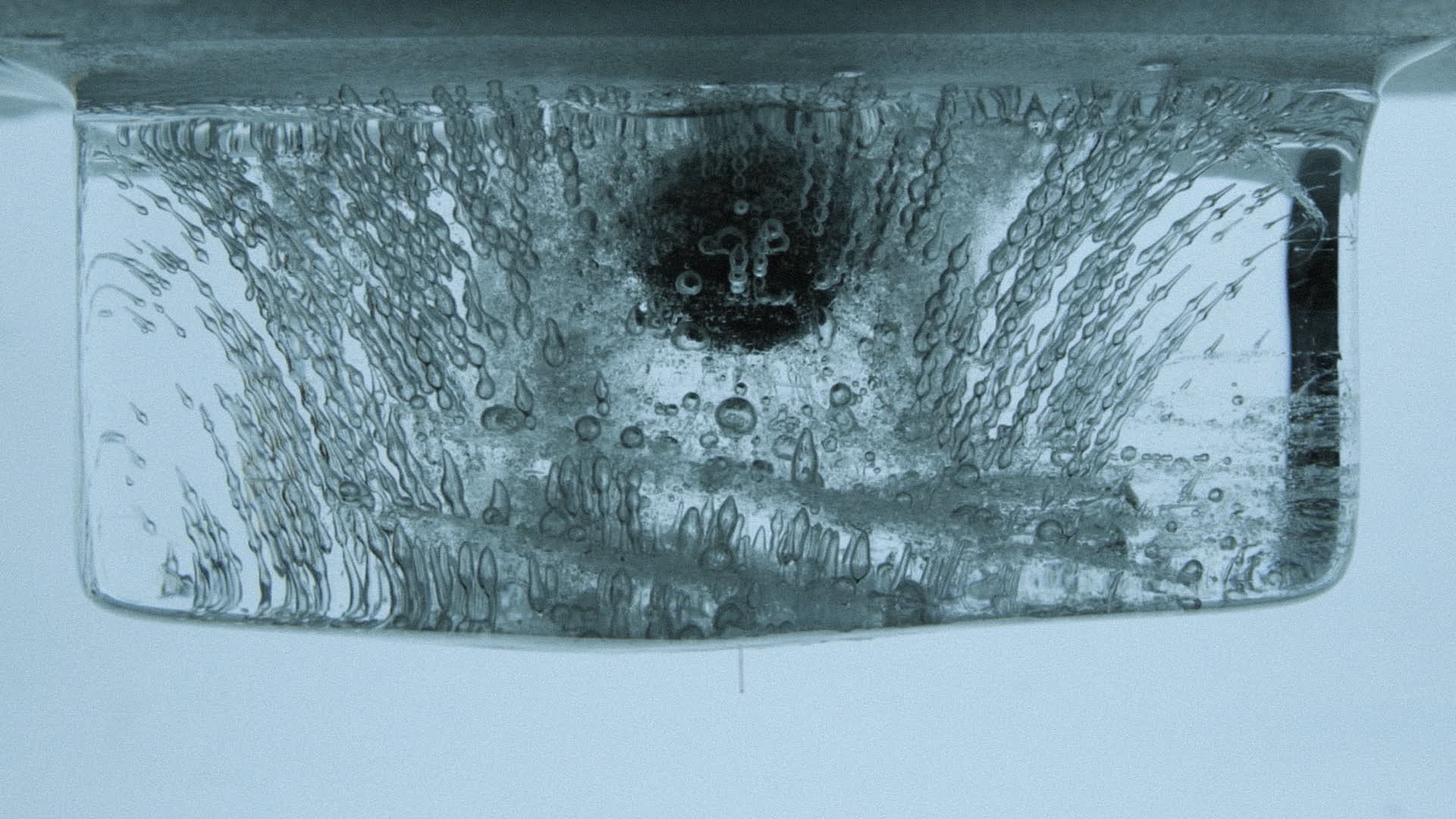
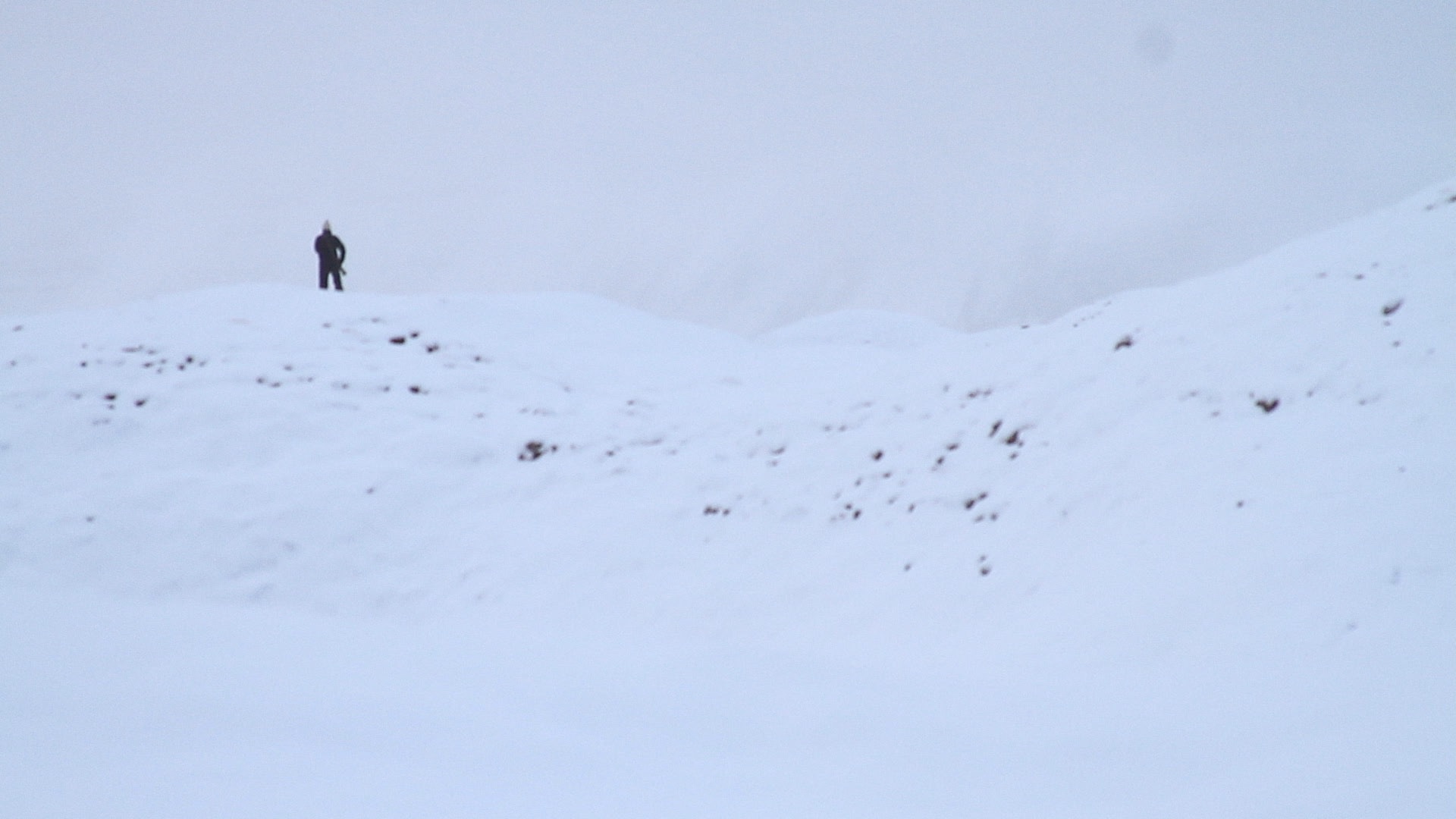
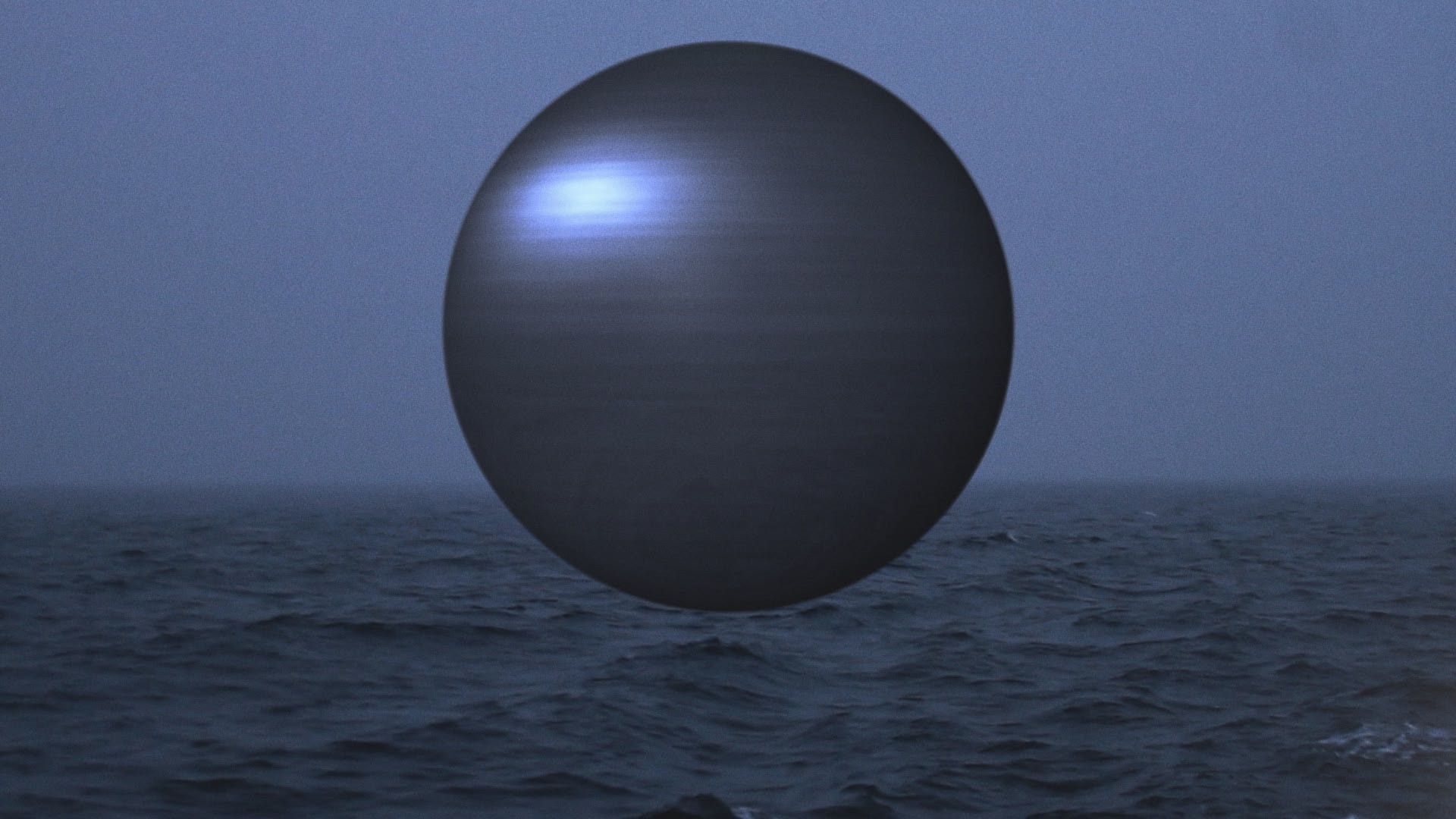
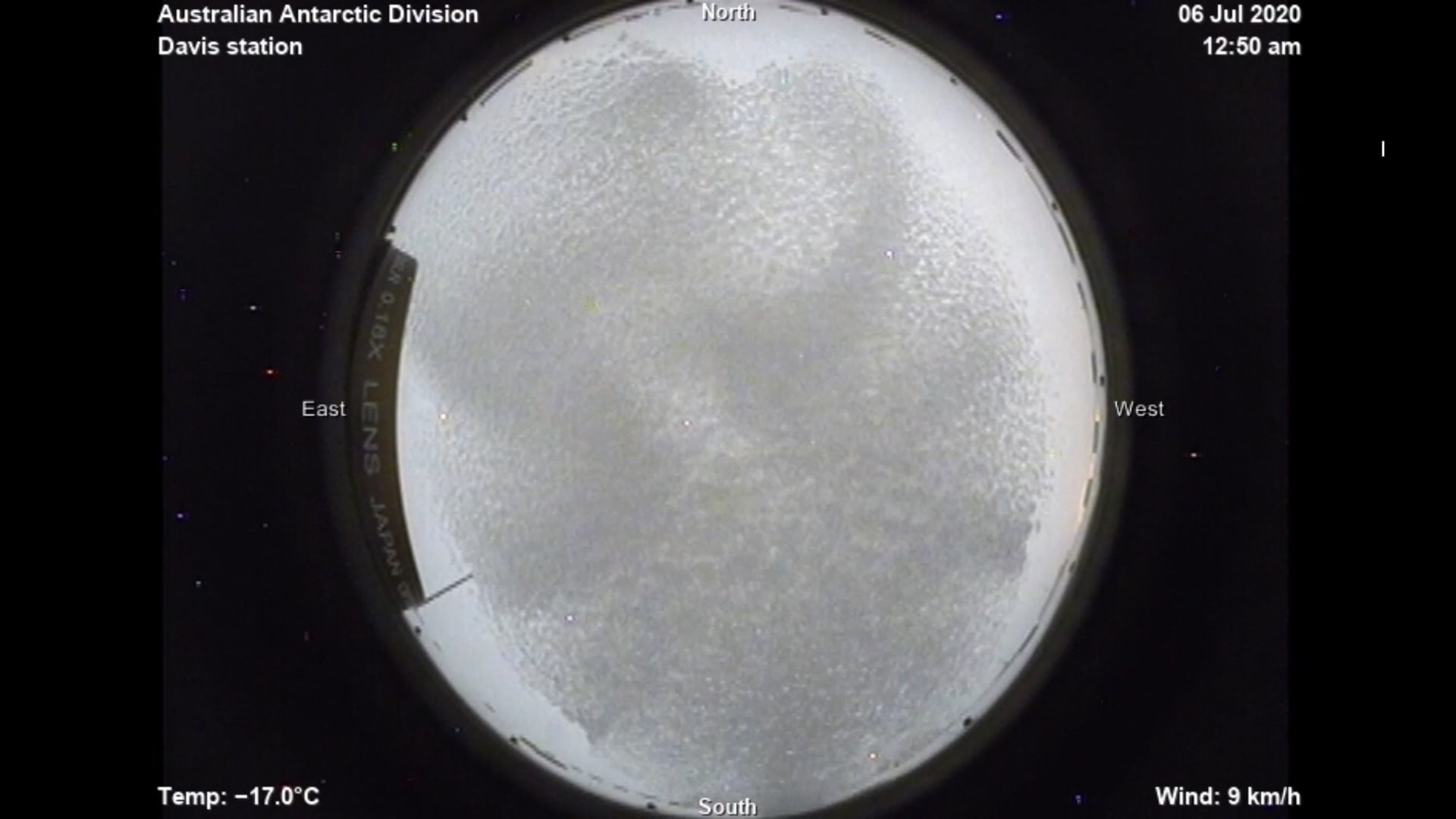
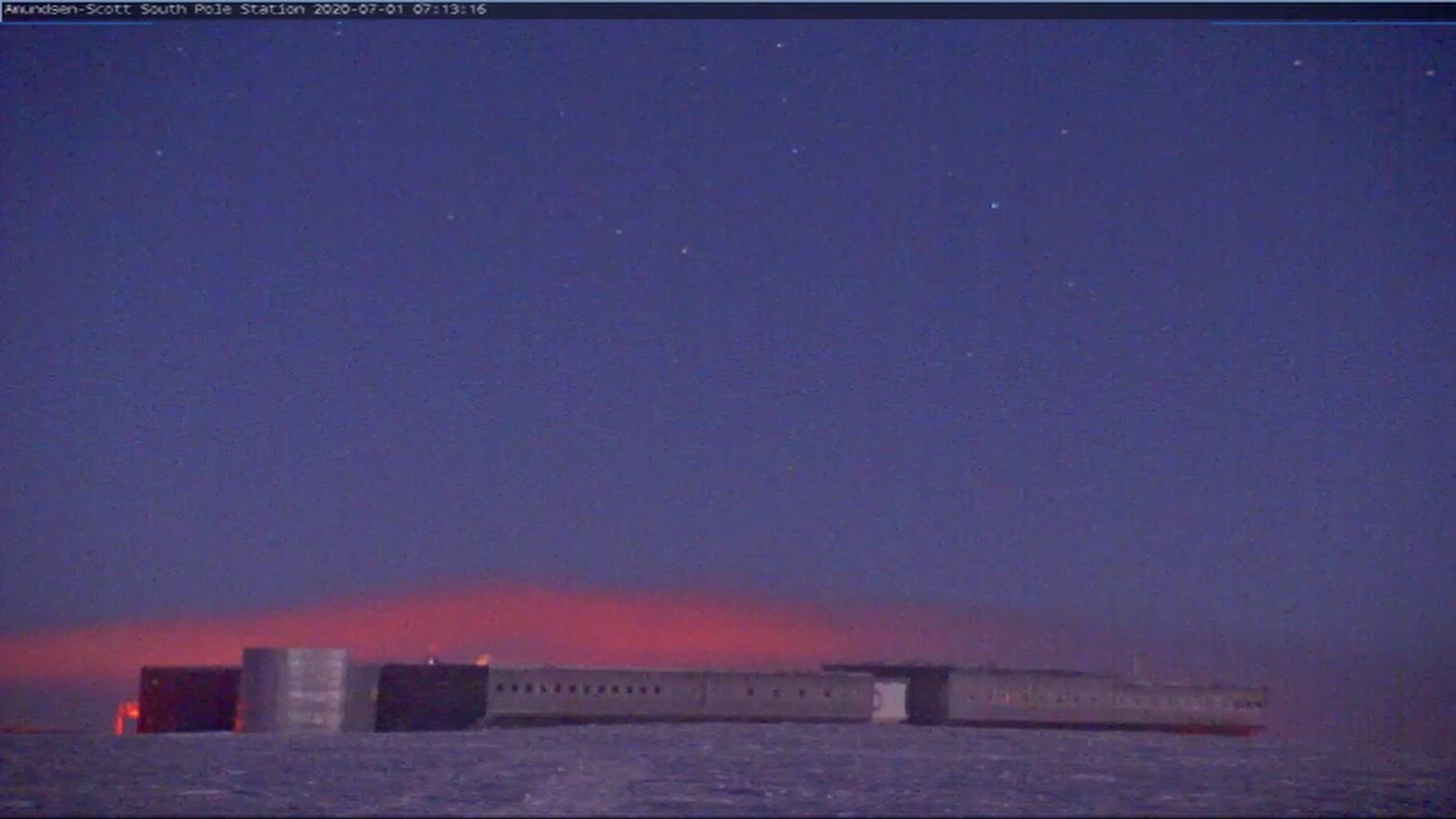
Interactive movie , 8’, 5.1 sound
2020
Null Island is located at 0°N 0°E, where the prime meridian and the equator cross. The location is marked by a buoy in the Atlantic. This hypothetical place exists only in mathematics and cartography: it was created so that other places could be indexed on a map.
At a
weather station in Antarctica, a scientist and a robot talk to each other. In
Letícia Ramos’s Null Island, science is the backdrop to a story that speaks of
isolation and loneliness. We follow the scientist’s perception of a strange
phenomenon that appears in the polar landscape: a metallic sphere that cannot
be captured by cameras and is visible only to the organic eyes of humans and
animals. The robot – a form of artificial intelligence that controls the
cameras and has been living there for a long time – cannot detect the sphere
and this disagreement about what is being seen triggers more subjective and
existential conversations between scientist and robot. The temporality in Null
Island is fluid, going back-and-forth; present and past refers to a hypothetical future that depends on the
viewer’s interactive choices. The current time appears in the work through data
produced by a live streaming seismograph, telling us about the state of the
ground where we live.
Null
Island was constructed using appropriated images from webcams located in the
Dark Sector of the Amundsen-Scott South Pole Station in Antarctica. There, live
cameras provide one photograph every 90 seconds, which Ramos spent months
capturing and then compiling into a stop motion animation. The natural
phenomena that occurred in the landscape were then condensed: hours of film
turned into seconds, revealing natural phenomena that would be invisible to the
human eye because of the extended temporality. Null Island also contains
footage taken by Ramos in Antarctica, together with images produced with models
in her studio in São Paulo during the lockdown.
aarea
2020
